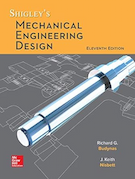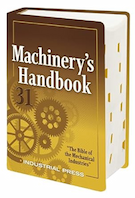Choosing the Right Continuing Education Courses
Continuing education is a crucial aspect of a successful career in engineering. With the rapidly changing technology and advances in the field, it's essential for engineers to continuously expand their knowledge and skills. However, with so many options available, choosing the right courses can be challenging. The investment of time and money can be significant, making it even more critical to choose wisely. Here are some tips to help you make the most of your investment in continuing education.

1. Assess your current skill set
Before choosing any courses, take the time to assess your current skills and knowledge. Determine what areas you are strong in and what areas you need to improve. This will help you determine the courses that will be most beneficial to you.
2. Consider your career goals
Your career goals should play a significant role in determining the right courses for you. For example, if you have aspirations of advancing your career or moving into a new field, consider courses that will help you achieve those goals. We offer a set of online engineering courses that are ideal for engineers looking to advance their professional development along the technical career track.
3. Look for courses that are relevant
Relevance is key when choosing continuing education courses. You want to choose courses that will have a direct impact on your current job or your future career. Look for courses that allow you to develop skills to grow your career along your intended track. We offer a set of engineering courses that are ideal for the technically focused career track.
4. Read the course descriptions carefully
Before signing up for a course, be sure to read the course descriptions carefully. This will give you a better understanding of what the course covers, the time commitment required, and the expected outcomes.
5. Look for online courses
Online courses offer flexibility and convenience, making it easier for you to continue your education while balancing your work and personal life. Some organizations such as ours offer open access to all available courses for a period of a year to provide greater flexibility to continue your education at your own pace.
6. Consider your budget
Continuing education can be expensive, so it's important to consider your budget when choosing courses. Look for courses that offer financial assistance, scholarships, or flexible payment plans. Some organizations such as ours offer open access to all available courses for a single low flat fee.
7. Seek advice from professionals
Talk to professionals in your field and ask for their advice on the best courses to take. They can provide valuable insights into which courses have had the biggest impact on their careers and which ones are worth your time and investment.
8. Check for prerequisites
Some courses may have prerequisites, so make sure to check if you need to complete any other courses before enrolling. This will help you ensure that you have the necessary knowledge and skills to get the most out of the course.
9. Get involved in professional organizations
Joining professional organizations can provide you with access to a wide range of courses, as well as opportunities to network with other professionals in your field.
PDH Classroom offers a suite of online continuing education courses tailored to engineers. These courses can be used to fulfill PDH credit requirements for maintaining your PE license, or just as a part of staying ahead in your field.
By following these tips, you can ensure that you choose the right continuing education courses for your career. Investing in your education will help you stay ahead in your career and increase your chances of success. The benefits of continuing education are numerous, including increased job security, the opportunity to earn more money, and the ability to stay up to date with the latest advancements in your field.
Continuing education is an investment in your future and your career. By taking the time to carefully choose the right courses, you can ensure that you are making the most of your investment. Whether you are looking to improve your skills, advance your career, or stay up to date with the latest technologies, continuing education is a valuable investment that can pay off in many ways.




